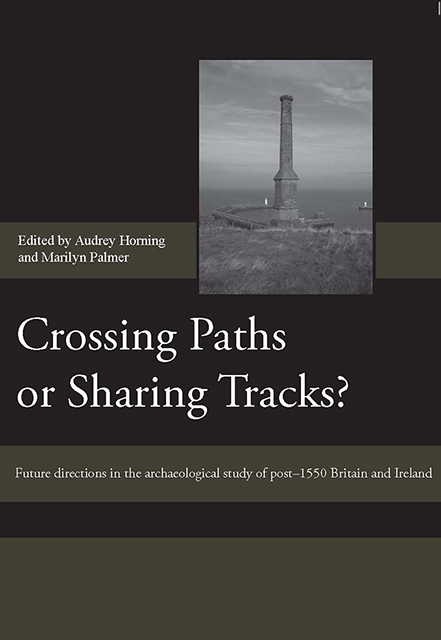 Crossing Paths or Sharing Tracks?
Crossing Paths or Sharing Tracks? Material Concerns: The State of Post-Medieval Finds Studies
Published online by Cambridge University Press: 07 March 2023
Summary
The study of finds, long central to post-medieval archaeology, has developed unevenly. This is in part because of biases in the buried record, resulting in an established wisdom that is in some areas arguably top-heavy withdata and in others surprisingly lean and simplistic through lack of basic information. The present discussion, concentrating on non-ceramic items, considers the present state of the art, some of the reasons for its having come to the point it has now reached and some potential future directions. There is below inevitably an emphasis on urban archaeology in areas that have been the focus of the writer's work over the past thirty years to illustrate points raised, but material elsewhere has also been used to present wider perspectives.
INTRODUCTION: SOME BASICS THAT DETERMINE THE PRESENT POSITION
The single volume that is Ivor Noël Hume's Guide to the Artifacts of Colonial America, first published in 19701 and still in print without major alteration after almost forty years, is probably, for most students and practitioners, the best starting point for gaining a rounded view of the scope of regularly unearthed material culture from the 17th and early 18th centuries. The title can be slightly misleading in that several items included in the volume were found in London rather than America. This is the only introduction to post-medieval finds across the board within one book. Other attempts to cover a similar range of material are few. Kathleen Deagan's publications of finds in America of Spanish origin, withtwo volumes available, comes closest, but there is – remarkably, in view of the amount of work undertaken in Europe – still no equivalent work undertaken on the Old World side of the Atlantic.
The 16th century was, until very recently, surprisingly poorly served in terms of detailed assimilation of everyday material culture for a period so familiar in historical terms withits memorable events and personalities. A series of publications in the early 2000s has made this problem less acute. The published finds from the wreck of the Mary Rose (which sank in 1545) include a number of ‘voucher’ objects (first-time published with close dating), some of them apparently otherwise unknown until the early 1600s (the non-survival of iron from the wreck is a limiting factor on what is otherwise an outstanding marker for 16th-century material).
- Type
- Chapter
- Information
- Crossing Paths or Sharing Tracks?Future directions in the Archaeological Study of Post-1550 Britain and Ireland, pp. 273 - 286Publisher: Boydell & BrewerPrint publication year: 2009


